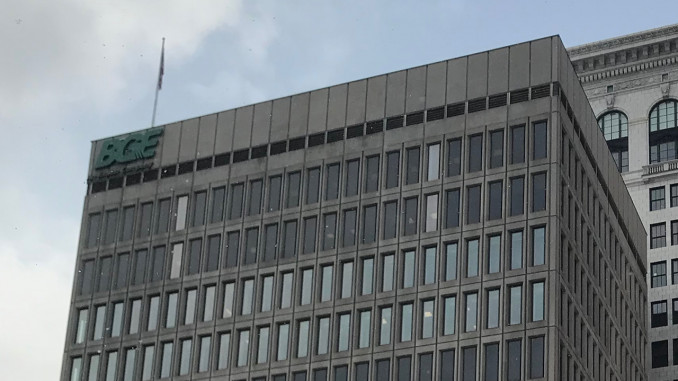
As winter began in late 2022, Adrienne Smith of the Easterwood neighborhood in West Baltimore had her gas service turned off, leaving her family without heat, hot water, or a functional stove. Smith had refused access to Baltimore Gas & Electric (BGE) when the utility company insisted on performing modifications to her home to install a new external gas regulator. As Smith and her neighbors sought out details about this new equipment, BGE provided “little to no information regarding its necessity, purpose or safety” and “every neighbor was told a different story.” After a frigid two-month standoff, including fruitless attempts at contacting City Council and at filing a self-written lawsuit, Smith finally gave in and allowed the utility to install the regulator.
Now that BGE’s gas regulator project has expanded to Baltimore’s wealthy, white neighborhoods such as Federal Hill, resident opposition to the installations has gathered the attention of every news outlet in town, the pro-bono services of a high-profile lawyer, numerous public hearings, and even an order from a judge requiring BGE to suspend the project. Many homeowners say they are concerned about damage to historic houses, the ugly appearance of the regulators, and the risk of an explosion in the case of a car collision with the new gas equipment. Three opponents of BGE have been arrested for protesting. In response, members of the Baltimore City Council proposed a ban on the installation of new external regulators.
For its part, BGE insists the project is exclusively for safety reasons. The new regulators allow for an upgrade that may prevent an over-pressurization accident like the deadly 2018 explosions in Massachusetts. Additionally, placing the regulators on the exterior of a building could mitigate the risk of internal gas leaks that can cause disasters like the 2016 fire here in Maryland that killed seven.
Even if we take BGE at its word that the project is necessary, it is disgraceful to ignore and punish residents like Smith who desperately seek information about the purpose of the gas equipment in their homes. And it would be a serious mistake to take BGE at its word. The company is wildly unpopular in Maryland and is the subject of many ongoing controversies. While they claim that it is simply a safety measure, the regulator project is immensely profitable for the company. Due to a Maryland law that allows utilities to pass the cost of infrastructure upgrades directly onto customers’ bills, Baltimore residents will be paying off this and other gas programs’ $15 billion cost until 2100. As those homeowners who can afford to electrify their homes in the coming decades stop paying for gas service, this cost will over time become concentrated on the lowest-income BGE customers.
BGE was rightfully laughed at by the attendees of a recent public meeting when a spokesperson absurdly implored, “I do not want you to think that BGE is a company that is focused on profit.” It is clear to Maryland residents that we are suffering under the regime of a monopoly, held hostage due to their control of our basic needs for heat and electricity. It will take much more than the current proposal in City Council banning the new equipment to address BGE’s horrific scheme. The bill will do nothing to stop BGE from making all its future decisions based on profit without hesitating to drag us deeper into climate catastrophe. If our utilities were under genuine democratic control, our state’s infrastructure could be updated to address the climate crisis, drop fossil fuels for good, and prioritize the needs and true safety of residents.

